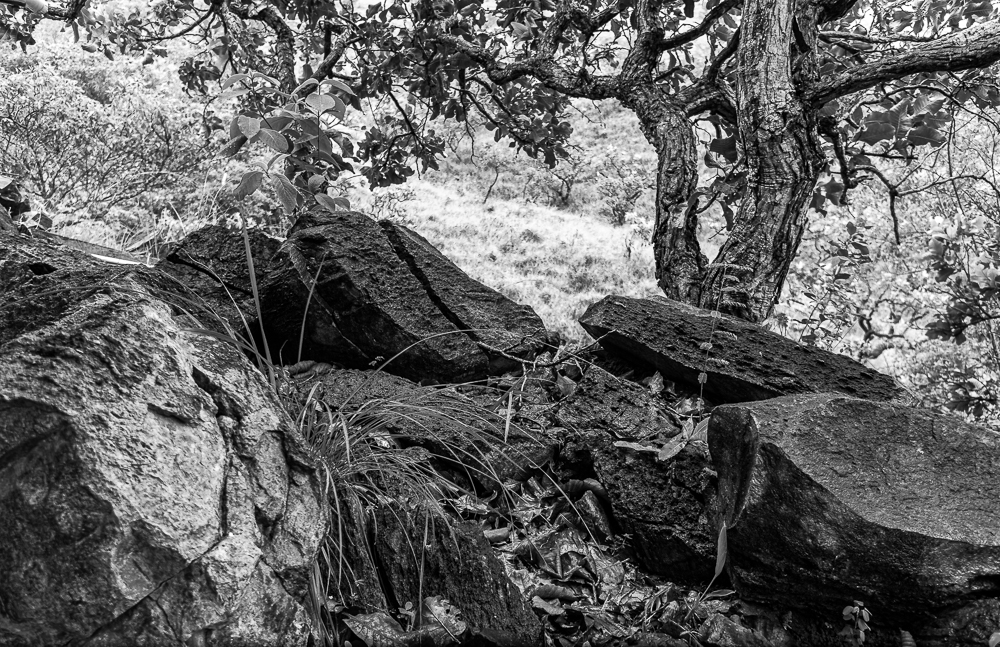After more than 12,000 deaths, more than 5,000 being children and 3,000 women, with 3,700 missing, there is no end in sight to the Gaza slaughter. Israel’s war on Gaza’s dwellings, more than forty percent of which is now rubble, now extended to its hospitals where surgeries are carried out without anesthetic, and premature children are dying because of non-functioning incubators, Israel’s war on Gaza has no end in sight. Having displaced 1.6 million Gazans by bombing and ordering northern Gazans to move to south Gaza, Israel says that it will now extend its bombing campaign in southern Gaza. Racing to the south to avoid bombs, the fate of both northern and southern Gazans is now dismal. And as if the bombs were not enough, Gazans now face starvation, according to the United Nations. Part of the headline of a New York Times article describes northern as “Ruins, Wreckage and Darkness.” It would have been more accurate if the description was “Ruins, Wreckage, Death and Darkness.”
Continue reading “END THE SLAUGHTER IN GAZA-THE GUYANA GOVERNMENT MUST CALL FOR A CEASEFIRE”VENEZUELA HAS ONLY A NODDING ACQUAINTANCE WITH RATIONALITY
In his speech to the United Nations General Assembly on September 20, President Irfaan Ali referred to a “very threatening message from Venezuela” in the form of a Communique attacking Guyana for advertising oil blocks in Guyana’s sovereign waters. The Venezuelan Government responded that: “The Bolivarian Republic of Venezuela will always assert its legitimate rights over the territory of Guayana Esequiba, through direct negotiations as established in the Geneva Agreement and in the spirit of peace that guides our diplomacy.” The Venezuelan view that the Geneva Agreement mandates that the border controversy must be resolved by direct negotiations has persisted for many years.
Continue reading “VENEZUELA HAS ONLY A NODDING ACQUAINTANCE WITH RATIONALITY”GUYANA CHALLENGES VENEZUELA’S REFERENDUM AT THE ICJ
Guyana’s challenge to Venezuela’s referendum, fixed for December 3, is to be heard by the International Commission of Jurists (ICJ) on November 14 in the Hague. The referendum calls on the Venezuelan electorate to answer the following questions: (i) do you agree or reject the 1899 Arbitral Award? (ii) do you support the Geneva Agreement as the only valid legal instrument for reaching a practical solution to the controversy; (iii) do you agree with the position of Venezuela of not recognizing the jurisdiction of the ICJ; (iv) do you agree to oppose Guyana illegally and in violation of international law, making use of the sea pending delimitation? (v) Do you agree with the creation of a ‘Guayana Esequiba’ State, and to grant Venezuelan citizenship and identity cards, in conformity with the Geneva Agreement and international law, consequently incorporating on the map of Venezuelan territory.
Continue reading “GUYANA CHALLENGES VENEZUELA’S REFERENDUM AT THE ICJ”A UNITED GUYANA CONFRONTS VENEZUELA’S INTIMIDATION AND PERFIDY
Venezuela’s plan to create a state of ‘Guayana Esequiba’ on Guyana’s territory is an act of brazen and lawless perfidy. The border between Guyana and Venezuela was lawfully determined in 1899 by an Arbitral Tribunal, established by the Treaty of Arbitration signed at Washington in 1897 to find a “full, final and perfect settlement.” A dispute had arisen between the United States and Britain, with the United States invoking the Monroe Doctrine on Venezuela’s behalf, in its claim that Britain was occupying territory to which it was entitled.
Continue reading “A UNITED GUYANA CONFRONTS VENEZUELA’S INTIMIDATION AND PERFIDY”CHANGING THE MIDDLE EAST
During the past week the Israeli Government has ordered the evacuation of northern Gaza into southern Gaza. Those who did not move were given a salutary lesson. The Al-Ahri Arab hospital was bombed last Tuesday, October 17, causing the death of near 500 persons, comprising patients, medical staff and persons seeking safety. Many were women and children. The fact that southern Gaza, to which northern Gazans were told to move, is also being continuously bombed, suggests that Israel wants to herd all the Gazans into an even more confined space because it would be easier to slaughter them all, or to force them all across the into Egypt through the Rafah Border Crossing. Israel has denied the bombing of the Al-Ahri Hospital and has blamed it on Islamic Jihad, a Gaza militant organization. This denial is part of the information war that Israel wages against Palestinians. By the time the truth that Israel carried out the bombing becomes accepted, as Al Jazeera has clearly revealed, the anger would have died down.
Continue reading “CHANGING THE MIDDLE EAST”





